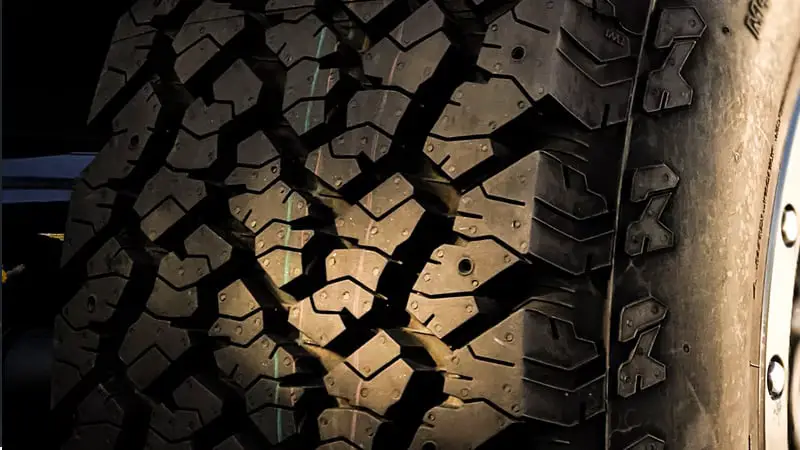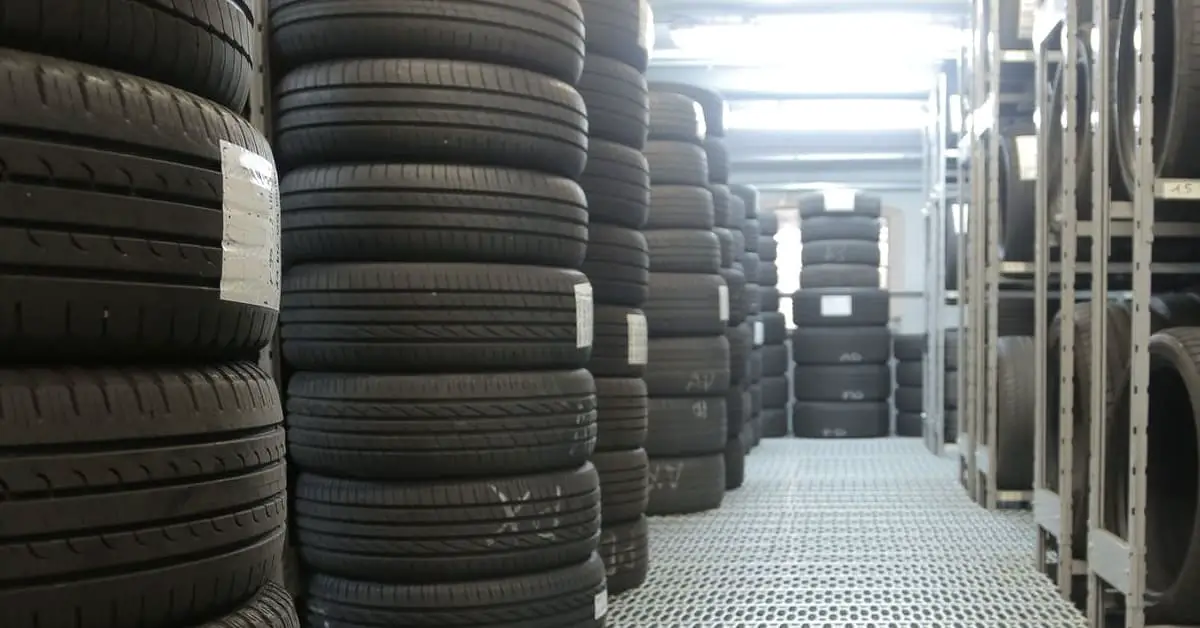WD-40 has so many uses that it’s tempting to just spray it on anything to clean, protect or lubricate it. But sometimes certain materials may not react well with WD-40 and cause damage. So is WD-40 bad for tires?
WD-40 is not bad for tires but there also isn’t a good reason to use it apart from spot cleaning. WD-40 is unlikely to damage rubber tires but it also is unlikely to benefit them in any significant way.
I’ll take you through the reasons for using WD-40 on your car tires and whether any safety issues exist. We’ll also look at some alternatives to WD-40 and cleaning techniques to get the most out of your tires.
Is WD-40 Safe for Car Tires?

Exactly what is inside WD-40 is still a closely-guarded secret. This is all despite WD-40 having its roots as missile maintenance fluid back in the 1950s. Not knowing precisely the active ingredients can make it hard to say exactly whether WD-40 is safe or not.
WD-40 has been shown as having notable cleaning and lubricating properties. However, it is not the case that WD-40 is some all-purpose cleaner that works for everything. Generally it’s advisable to consider WD-40 lubricating and helping with rust prevention.
Considering the publicly available material data safety information as reported by the manufacturers of WD-40, we can get an idea of all the ingredients. At the least, WD-40 contains Aliphatic Hydrocarbon, Petroleum Oil, and LVP Aliphatic Hydrocarbon.
Oils and hydrocarbons are not going to be ideal given their reactivity and strength with materials like tire rubber. None of these ingredients are known as having great cleaning power.
While WD-40 does have useful properties like water displacement and lubrication, none of this is liable to be useful for cleaning tires nor keeping a protective covering on them.
However, it’s not like there is solid evidence that WD-40 is 100% safe for tires. The WD-40 website doesn’t even list it as a main automotive use. WD-40 recommends using it on your vehicle’s weather stripping and rubber seals to stop them cracking or drying out.
Is WD-40 Bad for Tires?
WD-40 is a dark, oily substance. It can pick up dirt and debris over time and will leave a black, hard to clean stain.
WD-40 leaves behind a thin covering when used. While great for preventing the build up of rust or corrosion, this film is a magnet for dust and dirt and all other types of grime you will pick up from the road.
As WD-40 will seep into any surface it is sprayed on due to its surface tension, this can result in WD-40 getting into the tire and possibly damaging it from the inside. So while your tires may superficially look better, it’s unclear whether WD-40 is completely harm free.
WD-40 is more an oil, lubricant, and for rust prevention rather than cleaning tires. While the penetrating properties are useful in some applications, cleaning your tires doesn’t require you to get oil into the tire itself.
Will WD-40 Clean Car Tires?

WD-40 is likely to help clean your tires but not in any major way. For small marks, spots and spot cleaning purposes, WD-40 will work as good as any other substance but is not going to do much better than brake cleaner or detergents.
WD-40 can help leave a protective, oily coat on tires which will make them shine for a short period of time. While this may be good for a photo or when you’re trying to sell the car, proper automotive wax or tire cleaner is a better choice.
WD-40 doesn’t function that well as a cleaner, which means it requires a lot of WD-40 for even one tire.
For rubber applications, WD-40 has a product variety that may work much better than standard WD-40.
WD-40 Specialist Water Resistant Silicone Lubricant Spray is formulated to deal with silicone and rubber. It can help waterproof as well as protect surfaces. The WD-40 smart straw also enables you to spray the liquid into nooks and crannies to get all the dirt.
On top of this, the protective film left behind is clear and non-staining, unlike the standard WD-40 oily marks. While tire odor may not be at the top of your priorities, the silicone spray from WD-40 is very low odor compared to the pungent smell of standard WD-40.
The WD-40 silicone spray is also temperature resistant from -100F to 500F, meaning it can stand the extremes of the road and driving. It also doesn’t contain any VOC or volatile organic components, meaning it’s fine to use across all 50 states.

Your best bet is to look to a specialty tire cleaner to get any serious tire cleaning done. Adam’s Tire & Rubber Cleaner comes in a 16 ounce spray bottle and can be used to cut through road dirt and grime using a citrus-based cleaner.
Using surfactants and cleaners, Adam’s Tire & Rubber Cleaner will have much more dirt fighting power than WD-40. Surfactants or surface active agents are useful molecules that exploit the interface of water and air, acting as detergents and wetting agents.
Otherwise, when attempting to get grease and dirt off your tires, the classic DIY cleaning solution involves dish soap, white vinegar, and hot water. Sometimes lemon juice can be added to increase acidity and therefore cleaning power.
Detergents are what is going to remove stains, oils and other grime you pick up from the road.
WD-40 is great for removing adhesive gums that are left behind from tape and stickers. Spraying WD-40 on your tires will transfer some of this cleaning power that may be quite effective at removing certain types of residue on your tyres as well.

